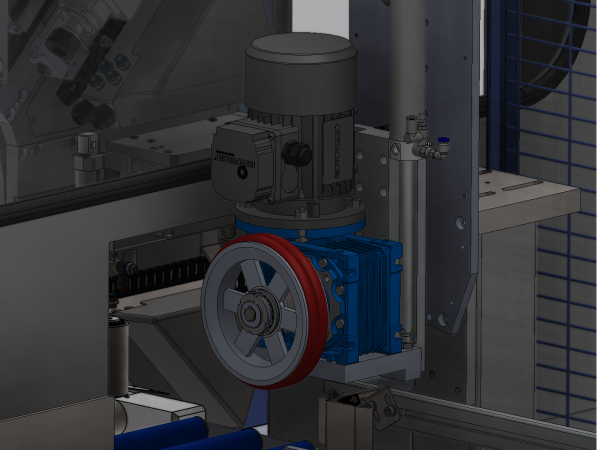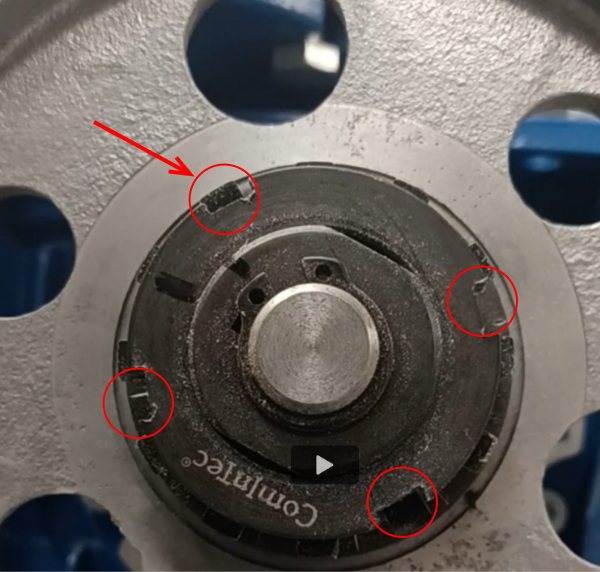How to correctly set the pressure and clutch settings on the infeed loading wheel
Sommaire
- 1 Introduction
- 2 Video d'introduction
- 3 Étape 1 - Select a heavy profile for setting up
- 4 Étape 2 - Move the x axis clear
- 5 Étape 3 - Check the profile can slide to the machine easily
- 6 Étape 4 - Activate the Wheel
- 7 Étape 5 - Set the pressure
- 8 Étape 6 - Attempt to slide the profile by hand
- 9 Étape 7 - Try with power
- 10 Étape 8 - Try with power and infeed clamps on
- 11 Étape 9 - Final manual test with motor off
- 12 Étape 10 - Fold over the castellation locknut
- 13 Commentaires
Introduction
Setting the pressure and clutch tension on the loading wheel is critical for the reliable and accurate running of the machine
If set incorrectly, the profile will slip and not load correctly or will not give an accurate start position for the datum holes
The goal is to set the system to a "goldilocks" zone where there is enough pressure and clutch tension to reliably load a bar, but not too much so the clutch limits any correctional movement from the gripper arm on loading
Vimeo
Étape 1 - Select a heavy profile for setting up
Use the heaviest profile you can find - a full bar of door T or transom
Place it under the wheel so it can be fed into the machine
Étape 2 - Move the x axis clear
Move the x axis to 4000mm so there is a clear test runway
Étape 3 - Check the profile can slide to the machine easily
Ensure there are no height spots or differences in height between the infeed and outfeed table that prevent the smooth transition of the profile into the machine
Activate the side and top infeed clamps with the profile inside, check again that it slides easily -the top and side clamps should be on 2 bar
Étape 4 - Activate the Wheel
Ensure the top and side infeed clamps are off
Bring the wheel onto the profile
Étape 5 - Set the pressure
Pressure should be set to 1 bar - any more than this creates too much drag for the clutch wheel to overcome
Étape 6 - Attempt to slide the profile by hand
The wheel clutch tension should be set so you can still manually push the profile and out of the machine. The wheel should turn (ie should not not skid on the profile) but there should be obvious tension.
Adjust the clutch tension if to suit
Étape 7 - Try with power
With the wheel on the profile, try the wheel motor on
The bar should drive in.
If the clutch slips, turn motor off, tighten clutch, try again
Étape 8 - Try with power and infeed clamps on
Try same test again with the infeed clamps on.
The clutch needs to just overcome the friction created by the side clamps
Étape 9 - Final manual test with motor off
Now the clutch has been tightened to overcome the infeed clamp forces, see if you can still slide the bar with the wheel done and the infeed clamps on.
It should be more difficult, but it should be possible to overcome the forces.
If this manual test fails, there could be one or more of these problems:
- Too much down pressure on wheel
- Clutch is too tight
- Friction / tightness in a roller
- A non-rolling part of the table or fence sticking out causing friction
Draft


 Français
Français English
English Deutsch
Deutsch Español
Español Italiano
Italiano Português
Português